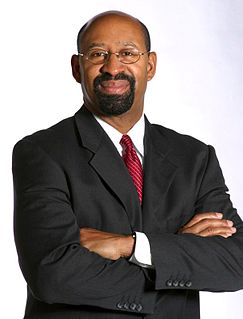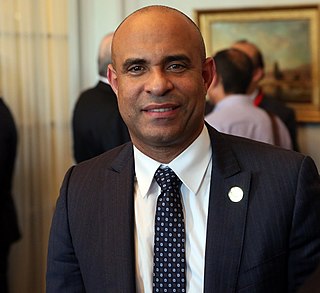A Quote by Winnie Byanyima
Governments, the investor and business community, and civil society organizations and public representatives need to work together to ensure the necessary foundations are in place to align private finance to guarantee sustainable and equitable development and poverty reduction.
Quote Topics
Related Quotes
There's a law of physics: For every action there's an equal and opposite reaction. And sometimes that shows up in politics and society. And I think that the reaction to President Trump's decision on the Paris Agreement has been much stronger than I had even hoped for. And the determination being expressed by so many people in state governments, city governments, in the business community, the investor community, is really heartening to me.
Our Government understands that local, community organizations are essential in addressing social issues like economic development, poverty, education and integration in Canadian communities. The Community and College Social Innovation Fund will connect the innovative talent of researchers and students at colleges and polytechnics to meet the research needs of local community organizations to build stronger, safer, healthier communities.
Civil society space provides the oxygen for citizens to participate and meaningfully hold their governments and the private sector to account - and ensure that decisions are made in the interest of the majority and not the few. Without it, citizens have limited space to dissent and challenge the elites.
Civil society people - these are the people - civil society groups are the people who need to monitor the aid to ensure that the aid is directed to what it is supposed to. And in order for them to do so, they need to have the space, they need to have the freedom, and they need to have the right to demonstrate, and to petition their government. They can't do that in Ethiopia; they can't do that in Eritrea; and so this is why I was cautioning that we may be repeating some of our old mistakes.































